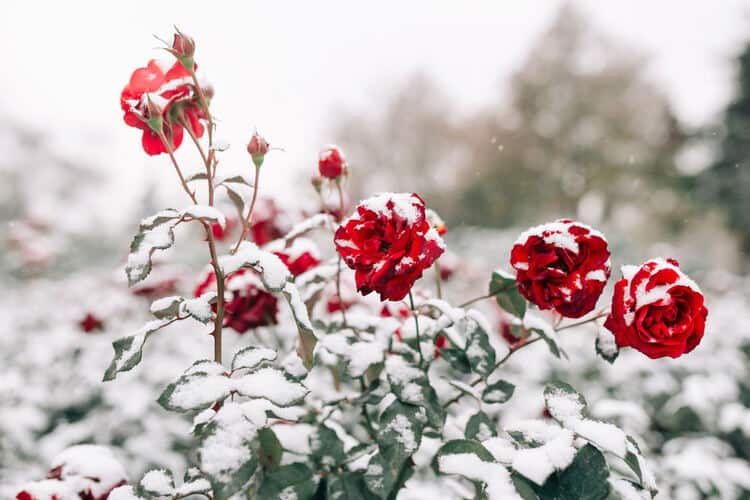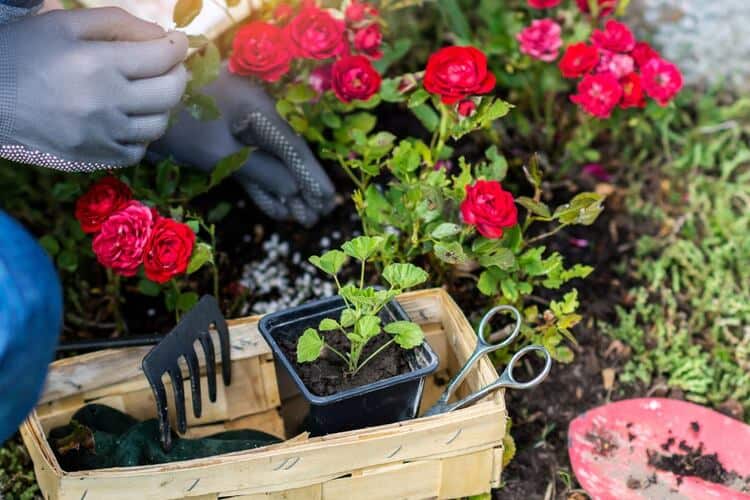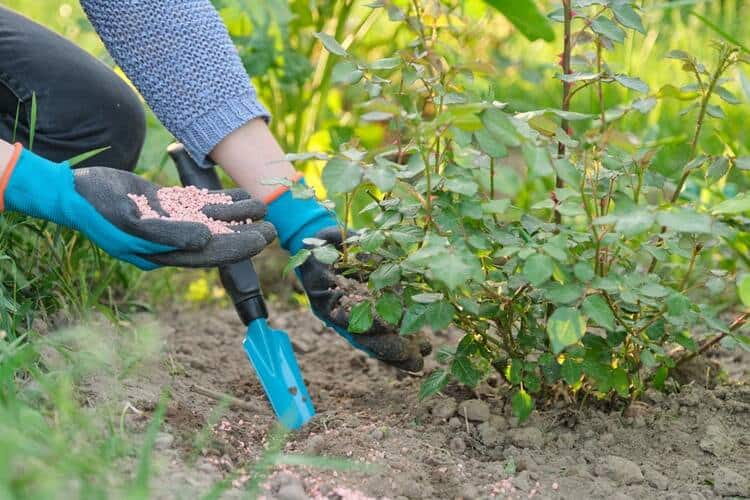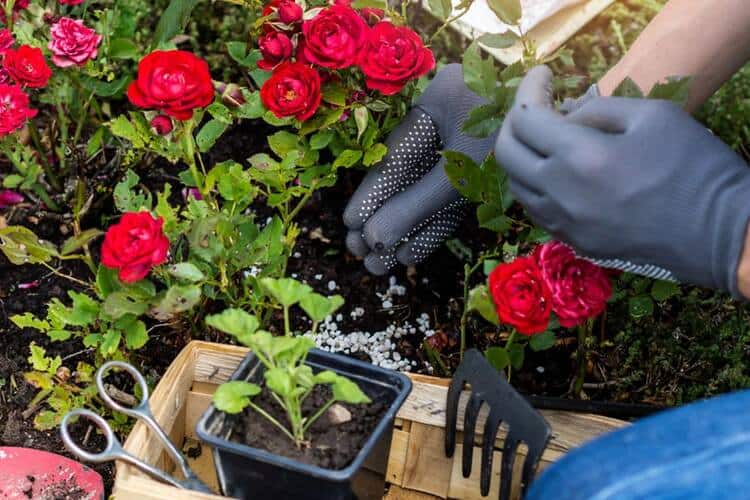Should I Fertilize Roses in Winter: Care For Rose In Winter

Caring for roses is a favorite of many gardeners, although it is a difficult thing to do. What do you need to keep in mind to ensure the health and winter survival of your roses and promote strong growth in the spring? Should I fertilize roses in the winter?
The answer is no. You should not apply any more fertilizer to your plants after August 15th, as extra nutrients will encourage new soft growth, which is susceptible to frost threats in the approaching winter. In this post, Swipe Garden will help you take care of your beautiful flowers properly by answering all the questions relating to rose fertilization.
Should I Fertilize Roses In The Winter?
No, you should not fertilize your plants after August 15th. You should avoid fertilizing until late September as part of your winter preparation for Rosa.
Additionally, repeat-blooming roses may require additional nutrients, while roses that only bloom once in the spring may not. One feeding at the beginning of spring is usually sufficient. You can add more applications only if your greenery is not healthy-looking or is not blooming as you expect.
How Do You Take Care of Roses In The Winter?
Pruning
Once you notice freezes or hard frosts have hit your garden, it’s time to prune. Pruning helps prevent winter wind or snow damage to the canes.
Mounding up
To protect your rose bushes from cold weather, create mounds of rose collar mulch and garden soil around the base of each bush.
Watering
Proper watering is essential for the winter care of roses. In some regions, winter is pretty dry, causing the favorable soil moisture to be quickly depleted. Winter is the time you and your plants rest a bit, yet you can’t entirely forget your landscape. Otherwise, there will be much work to do in the upcoming spring.
When Should You Fertilize Roses For Winter?
For granular fertilization, apply fertilizer every two or three weeks during the growing season, from early spring to late summer or fall. If using liquid fertilizers, apply every four to six weeks.
Start feeding when the new growth reaches a height of 4-6 inches and you can see 5-7 leaves.
Weather conditions are not certain. Although there is still the potential threat of frost damage, your flowers can’t bear hunger for such a long time. In regions with freezing winter climates, cease fertilization eight weeks prior to the first frost.
What Do You Feed Roses In The Winter?
If fertilizing in October or late September, use a low-nitrogen mixture, such as a 2-4-1 mix. Avoid fertilizing roses with both balanced manure (like 10-10-10) or a fertilizer high in nitrogen. These numbers represent the percentages of nitrogen, phosphorus, and potassium in the fertilizer.
Nitrogen stimulates leaf growth, phosphorus promotes root growth and flowering, and potassium enhances overall plant health. You should not encourage your roses to produce new tender shoots in late autumn when winter is approaching. The first hard frost will kill them off.
If you’re concerned about nutrient deficiency in your blooming plants during September or October, consider applying a foliar fertilizer, such as Neptune’s Harvest or Monty’s Joy Juice. Spray a decent amount of these foliar manures on the rose’s leaves. They’ll give your greenery an immediate energy boost, assisting it in producing lush bushes in the late growing season.
Or you should use an organic fertilizer like Rose Tone three times during the growing season, in April, June, and August. Epsom salt has a long history of use as both an organic fertilizer and a pesticide.
Do Rose Plant Leaves Turn Yellow In Winter?
The yellowing of rose bush leaves can be caused by several factors. It can result from over-fertilizing, drought stress, nutrient-deficient soil, saturated soil, fungal disease, or a lack of light. You can also notice rose leaves’ colors turning yellow in winter since they’re entering the state of dormancy.
Roses are deciduous plants. Thus, they engage in a dormant mode and drop their leaves before winter. The leaves turning yellow before dropping off are part of annual leaf shedding. If you notice your rose leaves turning yellow in the winter, rest assured that it is a natural part of the plant’s preparation for winter and not a sign of death or disease.
Conclusion
If you desire to see full, healthy buds on your roses every spring, it is crucial to learn how to care for them before and during the chilly winter months. I wish you well for a beautifully blooming garden!
Related posts:




